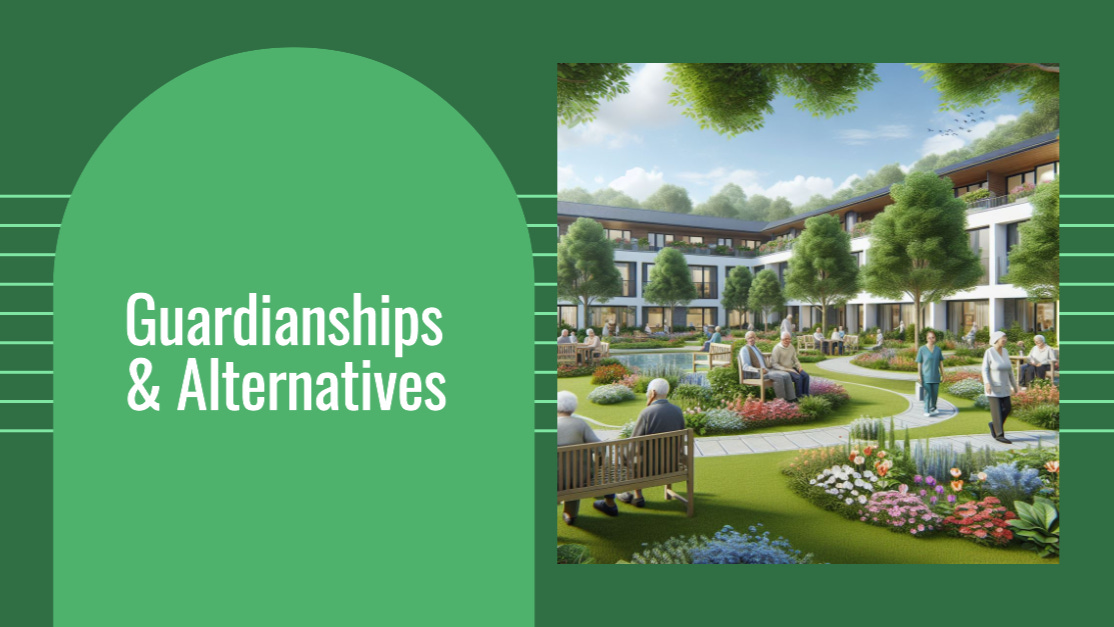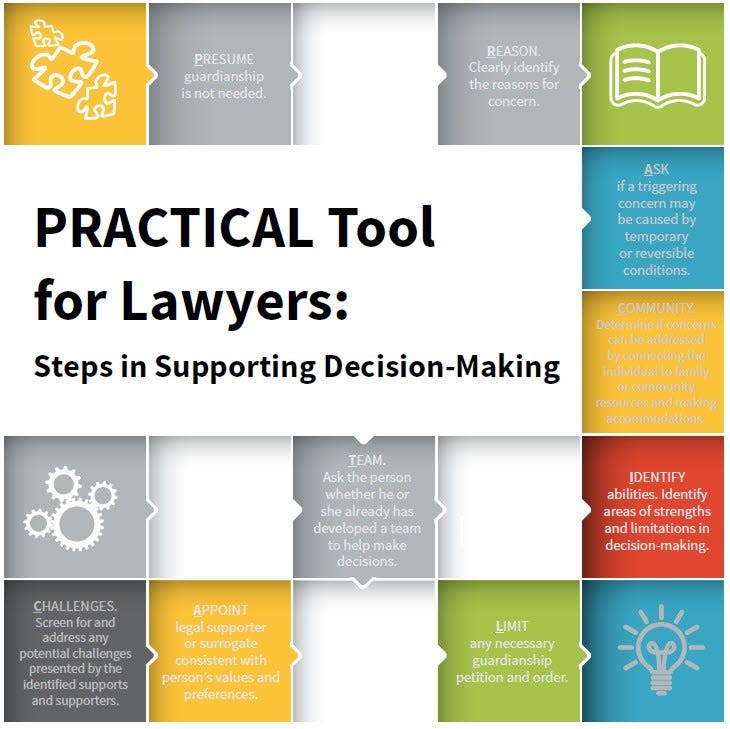I am grateful for all the support in the community since Hurricanes Helene and Milton hit the Tampa Bay area this past fall to be able to resume part-time studies at Stetson University College of Law this spring. This semester, I am focused on learning more about Guardianships & Alternatives from Prof. Edwin Boyer and a stellar group of classmates.
I do not have a lot of personal experience with guardianships myself, but it has been enlightening learning the history of this area of the law, the evolution from considerations of competency to capacity, and the expectations placed on guardians, particularly in an elder law context. I am more familiar with some of the other alternatives, like Powers of Attorney, various types of Trusts, Advanced Health Care Directives, and geriatric case management, that can all be structured to provide the individualized level of assistance needed without resorting to any type of guardianship.
Not everyone is able to plan ahead to avoid guardianship for various reasons, and some crises are virtually impossible to plan for ahead of time, so it is important to be aware of this area of the law and when it may have to come into the picture as a consequence of unforeseen events.
Among the resources we've been learning more about and understanding their application, are:
The ABA & APA's Assessment of Older Adults with Diminished Capacities, Handbook for Lawyers, 2nd Ed., available with additional resources for judges and psychologists at https://www.apa.org/pi/aging/programs/assessment/
Uniform Guardianship, Conservatorship, and Other Protective Arrangements Act
NAELA's Aspirational Standards for the Practice of Elder Law and Special Needs Law
ABA PRACTICAL Tool for Lawyers: Steps in Supporting Decision-Making
My favorite so far has been the PRACTICAL Tool since it helps to remember the key components at each step along the way, as shown in the image below:
Presume, Reason, Ask, Community, Team, Identify, Challenges, Appoint, and Limit.
The folks at Disability Rights Florida also have great resources, including a video about supported decision-making available below:
And, of course, I could not avoid bringing up the impact of AI in this space. Since there is not a one-size-fits-all approach to finding the least restrictive means of supporting those with diminished capacity, leveraging AI to assess, monitor, assist, and reevaluate progress in these cases will likely continue to increase, as tools become more reliable in their ability to scale to achieve the desired outcomes for a growing elderly population.
Obligatory links to the Florida and Texas Ethics opinions on the use of AI:
Florida Bar Ethics Opinion 24-1, Jan. 19, 2024, at https://www.floridabar.org/etopinions/opinion-24-1/
Tex. Comm. On Professional Ethics, Op. 705 (2025) at https://www.legalethicstexas.com/resources/opinions/opinion-705/
I feel like I've learned so much already just in this first month of the course, and looking forward to digging even deeper on related topics. Given all the recent changes in the Federal departments and agencies supporting various aspects of elder care, from Social Security to Medicare & Medicaid, to Veterans' Benefits, Health & Human Services and more, it is going to be even more important for professionals involved in this space to keep up with the latest developments and practical considerations to achieve their clients' goals based on their circumstances and jurisdiction.
Also, be sure to bookmark the NAELA consumer resources available at https://www.naela.org/Web/Web/naela_Resources.aspx
Resources
ABA & APA's Assessment of Older Adults with Diminished Capacities, Handbook for Lawyers, 2nd Ed. at https://www.apa.org/pi/aging/resources/guides/diminished-capacity.pdf
ABA PRACTICAL Tool for Lawyers: Steps in Supporting Decision-Making at https://www.americanbar.org/groups/law_aging/resources/guardianship_law_practice/practical_tool/
Disability Rights Florida, "Alternatives to Guardianship Explained," Jun. 18, 2020, at
Disability Rights Florida, "Governor Ron DeSantis Officially Signs Supported Decision-Making into Law," Jun. 14, 2024, at https://disabilityrightsflorida.org/newsroom/story/governor_signs_SDM_into_law
Florida Bar Ethics Opinion 24-1, Jan. 19, 2024, at https://www.floridabar.org/etopinions/opinion-24-1/
Florida Code on Supported Decision-Making Agreements at http://www.leg.state.fl.us/Statutes/index.cfm?App_mode=Display_Statute&URL=0700-0799/0709/Sections/0709.2209.html
NAELA's Aspirational Standards for the Practice of Elder Law and Special Needs Law at https://www.naela.org/Web/Web/Who-We-Are/Aspirational_Standards.aspx
NAELA Resources at https://www.naela.org/Web/Web/naela_Resources.aspx
Tex. Comm. On Professional Ethics, Op. 705 (2025) at https://www.legalethicstexas.com/resources/opinions/opinion-705/
Texas Supported Decision-Making Agreement Act at https://statutes.capitol.texas.gov/Docs/ES/htm/ES.1357.htm
Uniform Guardianship, Conservatorship, and Other Protective Arrangements Act at https://www.uniformlaws.org/committees/community-home/librarydocuments?communitykey=2eba8654-8871-4905-ad38-aabbd573911c





